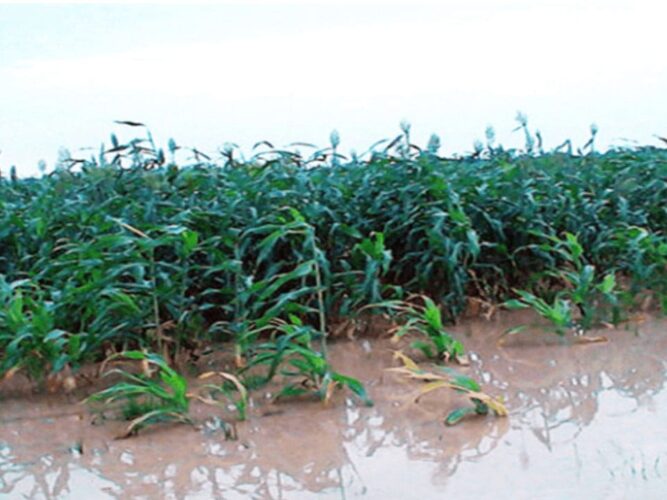Nigeria is still grappling with a worsening food crisis, as newly released data from the National Emergency Operations Center (NEOC) reveals that rising floodwaters have affected at least 115,265 hectares of farmland across the country. A detailed breakdown shows that Bauchi is the most affected, with 50,343 hectares of farmland submerged, followed by Taraba with 22,182 hectares, Jigawa with 9,919 hectares, Niger with 9,488 hectares, and Sokoto with 8,676 hectares.
Other states hit by the floods include Adamawa (3,392 hectares), Bayelsa (170 hectares), Borno (313 hectares), Ebonyi (100 hectares), Enugu (953 hectares), Gombe (1,311 hectares), Kaduna (120 hectares), Kano (3,072 hectares), Katsina (37 hectares), Kebbi (3,382 hectares), Yobe (223 hectares), and Zamfara (1,584 hectares).
The NEOC's 2024 flood report also highlights that 29 states, 154 local government areas, and 611,201 individuals have been affected by this year's flooding. So far, 225,169 people have been displaced, 83,457 households impacted, 201 lives lost, and 2,119 injuries recorded.
This alarming flood data comes amid ongoing food shortages and a food inflation rate exceeding 40%, according to the National Bureau of Statistics (NBS). Compounding the situation, a recent Central Bank of Nigeria (CBN) survey released on Monday indicates that rising inflation will force Nigerian households to allocate most of their earnings to food over the next six months.
The CBN’s Household Expectation Survey, conducted from July 22 to 26, 2024, with a 99.7% response rate from a sample of 1,665 households across all 36 states and the Federal Capital Territory, reveals that many Nigerians plan to cut back on non-essential items in the coming months. The survey indicates that households intend to spend 54.9% of their income on food during the next six months.
The survey also shows that in the next six months, consumers expect to allocate a significant portion of their income to food and other household items (54.9%), education (35.4%), transportation (30.2%), electricity (20.0%), and medical expenses (12.2%). Conversely, they do not plan to spend much on big-ticket items like purchasing a house, car, or household appliances, nor do they intend to invest in properties or other investments. Additionally, there is little intention to save, as the survey suggests that many will rely on their savings or incur debt to manage their finances.









